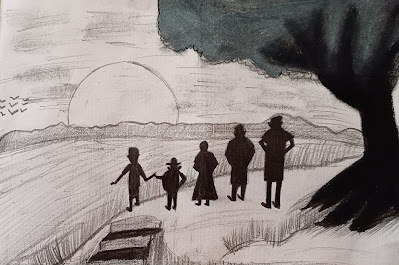Is Anxiety Problematic ?
Anxiety and its Impact
Across the globe, every person undergoes and experiences anxiety one way or the other. From childhood to adulthood, anxiety affects a person in many different ways. Practitioners and medical professionals do agree that anxiety in its various gradation level can influence a person's daily life as well as his performance at school or workplace in a positive or negative way. A minimum to approximate threshold of anxiety can act positively and can help a person improve his efficiency and performance and allow him/ her to be successful in life or career owing to the positive pressure that anxiety puts towards a better and positive outcome.
On the other hand, above this threshold level, anxiety can negatively affect the person and can de-rate his performance due to the excessive fear of failure or stress. The outcome is anticipated to be negative and the anxiety triggers several unintended hormones and neuro signals which may result in a 'fight, flight or freeze' response. The person may be unable to perform effectively and the output declines drastically.
Yerkes-Dodson Law Bell Curve
As shown in the graph above, the threshold level of anxiety can be termed as "Optimal Arousal for Optimal Performance". This curve is popularly known as the Yerkes-Dodson Law Bell Curve. To the left of this curve, anxiety and performance have a linear and proportional relationship. As anxiety increases performance becomes better until the optimum arousal is reached. Beyond this level, that is to the right of the optimum value of anxiety, the anxiety and performance have an inverse relationship. As anxiety increases, performance decreases. It is also to be noted that in the absence of any anxiety also the performance becomes low.
This reveals that a minimum anxiety is a requirement for better functioning while anxiety beyond optimum can be dangerous.
Symptoms of Over Anxiety
- Shortness of breathe
- Sweating
- Racing heart
- chest tightness and heaviness
- block feeling in throat
- dizziness
- nausea
- vomiting
- severe headache
- pins and needles
- frequent urination
- shivering
- diarrhea
- muscle tension
- Panic Disorder - Most common and relatively easily treatable anxiety disorder
- Agoraphobia - Fear of open spaces like shopping malls, crowds etc.
- General Anxiety Disorder - Also called as 'Worrying Disorder' and includes tension, poor sleep, over worrying, poor concentration, irritability etc.
- Social Phobia- 'Devastating Disorder'. Affects one's socializing ability.
- Obsessive Compulsive Disorder (OCD)- A form of anxiety in which one experiences contamination fear, excessive handwashing, distressing thoughts or images, rechecking due to doubts etc.
Steps and Treatments for Anxiety
As stated earlier, anxiety is the most common among all mental health disorders. They are disabling if the symptoms appear for a longer period and left untreated. Effective and efficient methods of treatment of Anxiety Disorders are available. People after proper treatment measures of anxiety gets their symptoms reduced or completely eliminated.
- Professionals can help the persons suffering from anxiety with identifying the type of anxiety disorder they have and can suggest appropriate treatment measures.
- The first step towards helping your dear ones who are suffering from anxiety disorders is that the care giver/family/friend/co-worker should be able to recognize that the person needs a professional help or support from Mental Health expert thereby providing timely intervention
- Cognitive Behavioral Therapy (CBT) :- a form of step by step talking therapy which helps people to understand their behavior or thoughts. It builds courage and confidence in the person and helps him/her in understanding oneself and their problems and finding effective practical, real time based solutions. The Mental Health expert or a Professional Counsellor can conduct the therapy and involves several one to one interview, review and practice confirming sessions.
- Breathing Exercise and Yoga based deep exercises can help the person to develop relaxation techniques and rejuvenate one's body and mind which further alleviates anxiety symptoms.
- Mindfulness technique based relaxation
- Exercise and proper diet can significantly contribute towards reducing symptoms of anxiety caused by stress and can improve sleep.
- If the patient's condition is very much worsened due to severe anxiety or stress issues, he must be immediately taken to a practicing Psychiatrist who is a doctor with specialization in Psychiatry.











Comments